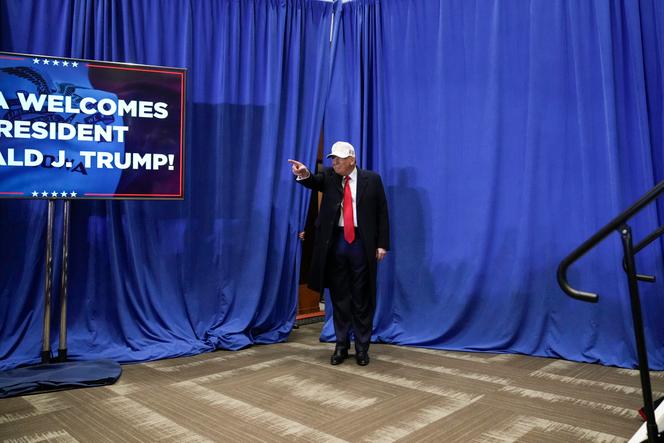


In the United States, when an election cycle begins with a weather report, it's easy to see that it's going to be something out of the ordinary. A polar temperature of -29°C engulfed Iowa during the night of January 15 to 16, which was also the night of the caucus, the first stage of the Republican primaries for the November presidential election. A thick white down blanketed this Midwestern state, battered by an icy wind. Stranded cars lined some major roads.
The cold is a frequent winter visitor to these parts. But, this time, who will be motivated enough to get in their car and drive to one of the public meetings organized in hundreds of gymnasiums, schools and libraries, where Republican supporters will debate in the early evening, before casting their vote?
This turnout represents the main unknown of the election, predicted by all major experts to go Donald Trump's way. It will be "robust," said Jeff Kaufmann, the chair of the Republican Party in the state. In 2016, around 186,000 people voted in the primary. Iowa Republicans appreciate their ceremonial role in the primaries, the honor of opening the competition, even if their choice doesn't necessarily determine what happens next.
The candidate will need to receive the support of 1,215 delegates at the Milwaukee convention in July to secure the Republican nomination. Iowa offers only 40 delegates, but this figure says nothing about the state's real influence. It is a test of credibility and stamina for the candidates and their organizational skills on the ground.

In the final benchmark poll released on January 13 by local media outlet Des Moines Register and NBC News, Trump stood at 48%, former United Nations ambassador Nikki Haley at 20% and Florida Governor Ron DeSantis at 16%. Entrepreneur Vivek Ramaswamy looked distant at 8%.
However, right up until the last moment, these last three candidates stepped up their public appearances. Will the winners be those who have the best grassroots organization – Trump and DeSantis – and the most networks throughout the state? Or Haley, whose electorate is mainly concentrated in the big cities and their outskirts, where the roads are clearer? The other uncertainty concerns the number of new voters.
Iowa regularly holds surprises, like Senators Rick Santorum (2012) and Ted Cruz (2016), both unexpected caucus winners, thanks to the evangelical vote. But their star didn't shine for long. Primaries are a race of elimination.
On January 10, former New Jersey governor Chris Christie withdrew before the first hurdle. The uncertainty in Iowa concerns the gaps between the top three and the finishing order. Will it be DeSantis or Haley who will end up being happy in second place with a semblance of momentum behind Trump, ahead of the New Hampshire leg on January 23?
You have 70% of this article left to read. The rest is for subscribers only.
